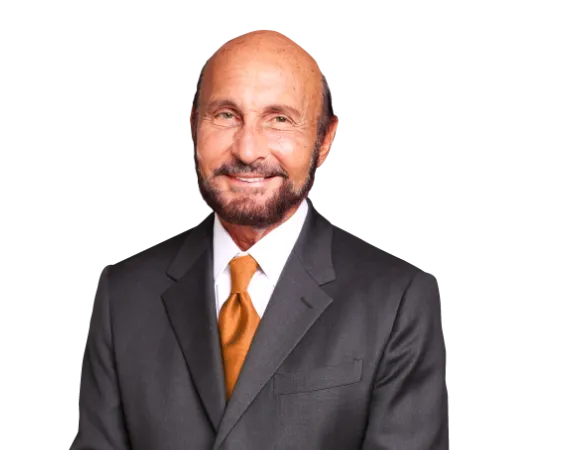Las Vegas is home to thousands of elderly individuals, with its senior population growing in recent years due to more older adults migrating to Southern Nevada. Clark County is currently home to an estimated 331,000 older adults (65 and older), making up 14 percent of Nevada’s total elderly population.
Unfortunately, elders who rely on the care of others are in vulnerable situations where they may be taken advantage of and abused by caregivers. If your family suspects any type of abuse against an older loved one in a nursing home facility in Las Vegas, Edward Bernstein & Associates’ dedicated nursing home abuse attorneys can help you seek justice.
Schedule Your Free Nursing Home Abuse Case Evaluation Now Online or Call (702) 508-7334
Over $1Billion in Settlements and Verdicts
Get Justice For Nursing Home Neglect and Mistreatment
Common Types of Nursing Home Abuse in Las Vegas Facilities
Nursing home abuse describes an individual or care facility knowingly or intentionally inflicting harm on an elderly resident. Nursing home abuse can be physical or nonphysical.
Types of elder abuse that may arise in a nursing home setting include:
- Physical abuse (hitting, kicking, slapping, pushing, etc.)
- Improper use of restraints
- Emotional and psychological abuse (threats, isolation, humiliation, etc.)
- Sexual abuse and assault
- Financial exploitation and theft
- Medical neglect and improper care
- Nutritional neglect and dehydration
- Unsanitary living conditions
- Elder abandonment
Cases of nursing home abuse often stem from issues within the facility itself, such as cutting corners on safety, staffing or surveillance to save money.
Warning Signs of Elder Abuse in Las Vegas Care Facilities
Cases of nursing home abuse and neglect are often hidden – either by the victim or the facility. Many victims of elder abuse don’t come forward for reasons such as mental or physical incapacitation, fear of not being believed, or fear of retaliation from the abuser. This leaves it up to family members to notice warning signs of nursing home abuse in many cases.
Different types of abuse can result in different signs. Common red flags include:
- Unexplained physical injuries (bruises, fractures, burns, etc.)
- Frequent trips to the hospital
- Sudden weight loss or malnutrition
- Poor personal hygiene or unclean living conditions
- Behavioral changes and emotional withdrawal
- Unexplained financial transactions
- Bedsores and other preventable medical conditions
- Overmedication or chemical restraint indicators
- Staff refusing to allow visitors or private meetings
If you notice any signs of potential nursing home abuse, take your loved one out of the facility immediately. Report your suspicions to management at the nursing home and to the police. Document everything, including taking photos of any physical signs of abuse. Get your loved one the medical care and emotional support needed. Then, contact a Las Vegas nursing home abuse lawyer promptly.
Nevada Laws Protecting Nursing Home Residents
In Nevada, nursing home residents have the right to be treated with dignity, respect and quality care under Nevada Revised Statutes § 449.001, also known as the Residents’ Bill of Rights. Nursing homes and long-term living facilities in Las Vegas must abide by specific laws and regulations to ensure the safety and health of their residents.
State laws require these facilities to abide by certain standards in terms of premises safety and how residents are treated. Adult Protective Services (APS) was created with § 200.509 to enforce Nevada’s nursing home and elder abuse laws. Certain professionals, including nurses and caregivers, are required by law to report incidents of suspected abuse to the authorities.
No Fees Unless We Win Your Elder Abuse Case
Schedule Your Free Consultation Today!
Who Can Be Held Liable for Nursing Home Abuse?
The party that could be held liable, or legally responsible, for a case of nursing home abuse in Las Vegas depends on the scenario. In many cases, the facility can be held liable – either directly for its own negligent acts, such as failing to meet Nevada’s required standards of care, or vicariously liable for the actions of its staff, including nurses and caregivers.
Depending on the details of your case, you may have grounds to hold an individual staff member, nursing home administrator or manager, corporation, medical provider, government entity, or third-party contractor liable for the abuse that you or a loved one suffered while living in a nursing home in Las Vegas.
Legal Options for Victims of Nursing Home Abuse in Las Vegas
Nursing home abuse is both a crime and civil tort in the State of Nevada, meaning victims have multiple options available for pursuing justice. Your family can start by contacting APS for intervention. They will investigate your complaint and may take action against the nursing home if evidence of abuse is discovered.
Then, you can cooperate with local police in a criminal case against the individual assailant. Criminal charges can lead to jail time and other punishments that penalize the abuser. Finally, a civil case against the individual or facility can serve to make the victim whole again.
Civil actions may include a personal injury claim, a Las Vegas wrongful death case if nursing home abuse was fatal for the victim or a medical malpractice lawsuit. An experienced nursing home abuse lawyer in Las Vegas can help you choose the best legal route for you and your family.
Damages Available in Nursing Home Abuse Cases
A successful injury claim for nursing home abuse could lead to financial compensation (or damages) for a variety of related losses, including:
- Medical expenses for treatment of injuries
- Pain and suffering compensation
- Emotional distress damages
- Costs of relocating to a safe facility
- Reimbursement for stolen or misused funds
- Punitive damages against egregious offenders
If nursing home abuse resulted in the tragic loss of the victim’s life, the family could also be eligible for wrongful death damages, including funeral and burial costs.
Why You Need a Specialized Las Vegas Nursing Home Abuse Attorney
Hiring an attorney to help you with a nursing home abuse claim in Las Vegas can make a major difference to your case’s outcome. Specialized legal representation can help by providing a free case evaluation, a thorough investigation of the facility and incident, careful documentation of the victim’s injuries and losses, and relevant experts to provide testimony.
You can count on a lawyer to take over negotiations with the nursing home’s insurance company or litigate your case at trial in Clark County for maximum compensation, if settlement offers are inadequate. Your attorney will make sure everything is filed within Nevada’s time limits and statutes of limitations.
Edward Bernstein & Associates is committed to protecting Las Vegas’s most vulnerable seniors. When you hire our nursing home abuse attorneys, you won’t pay us anything unless we recover financial compensation on your behalf. Contact us today to schedule your free and confidential case consultation. Call our local Las Vegas personal injury lawyers at (702) 508-7334.

